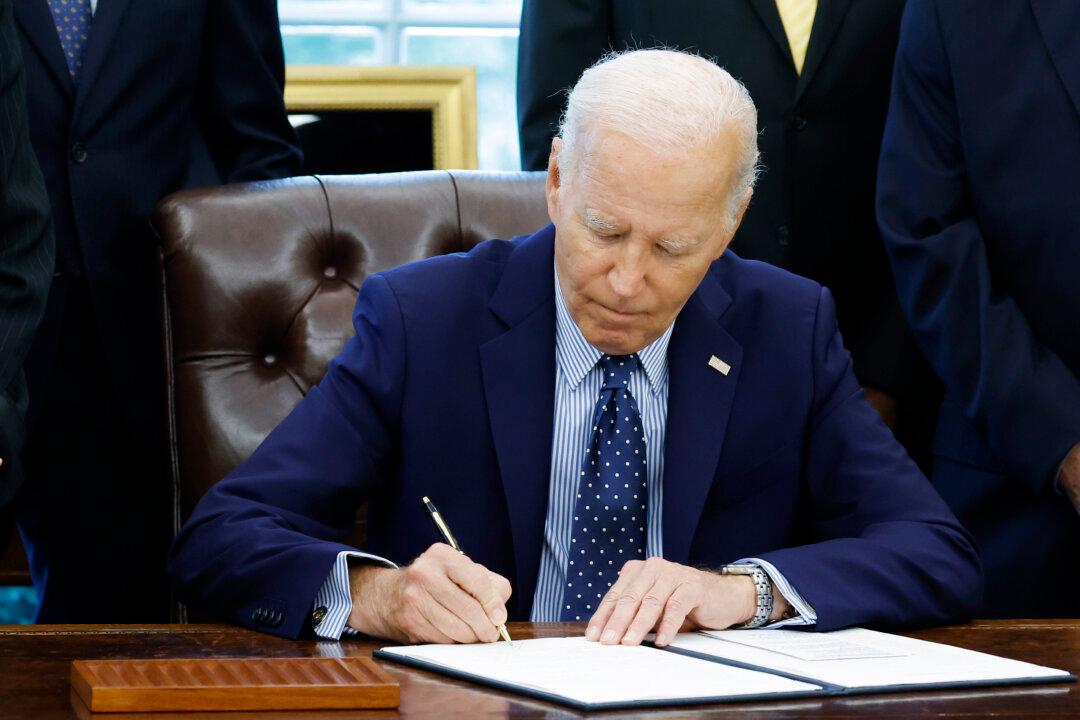President Joe Biden vetoed a bill aiming to expand judgeship slots in the United States, questioning the “motivating force” behind the measure.
Biden Vetoes Bill Seeking to Create 66 New Judge Positions
The new positions would have addressed the ‘judicial backlog’ facing the nation, a lawmaker said.

President Joe Biden signs a proclamation in the Oval Office of the White House, on Aug. 16, 2024. Anna Moneymaker/Getty Images




